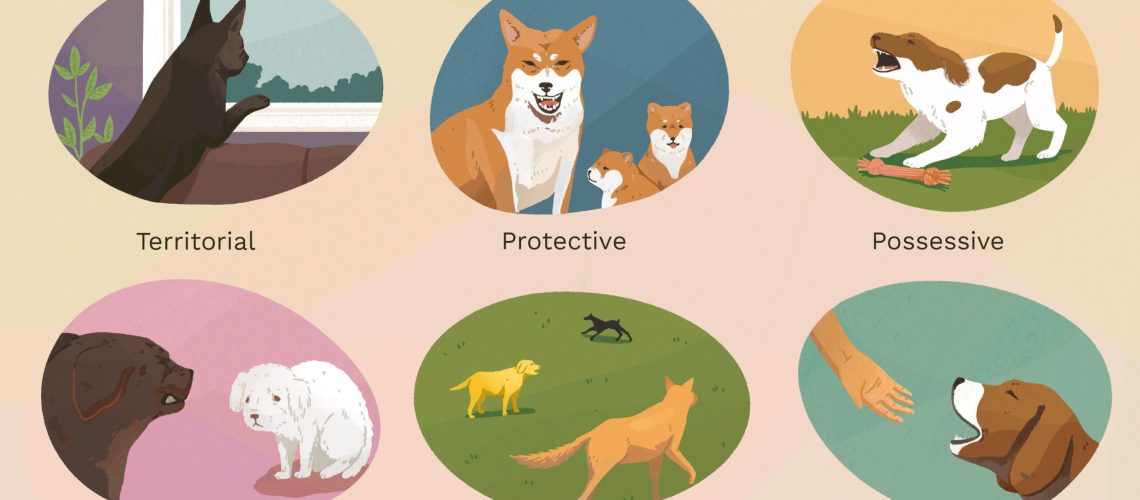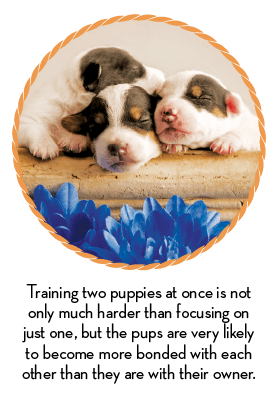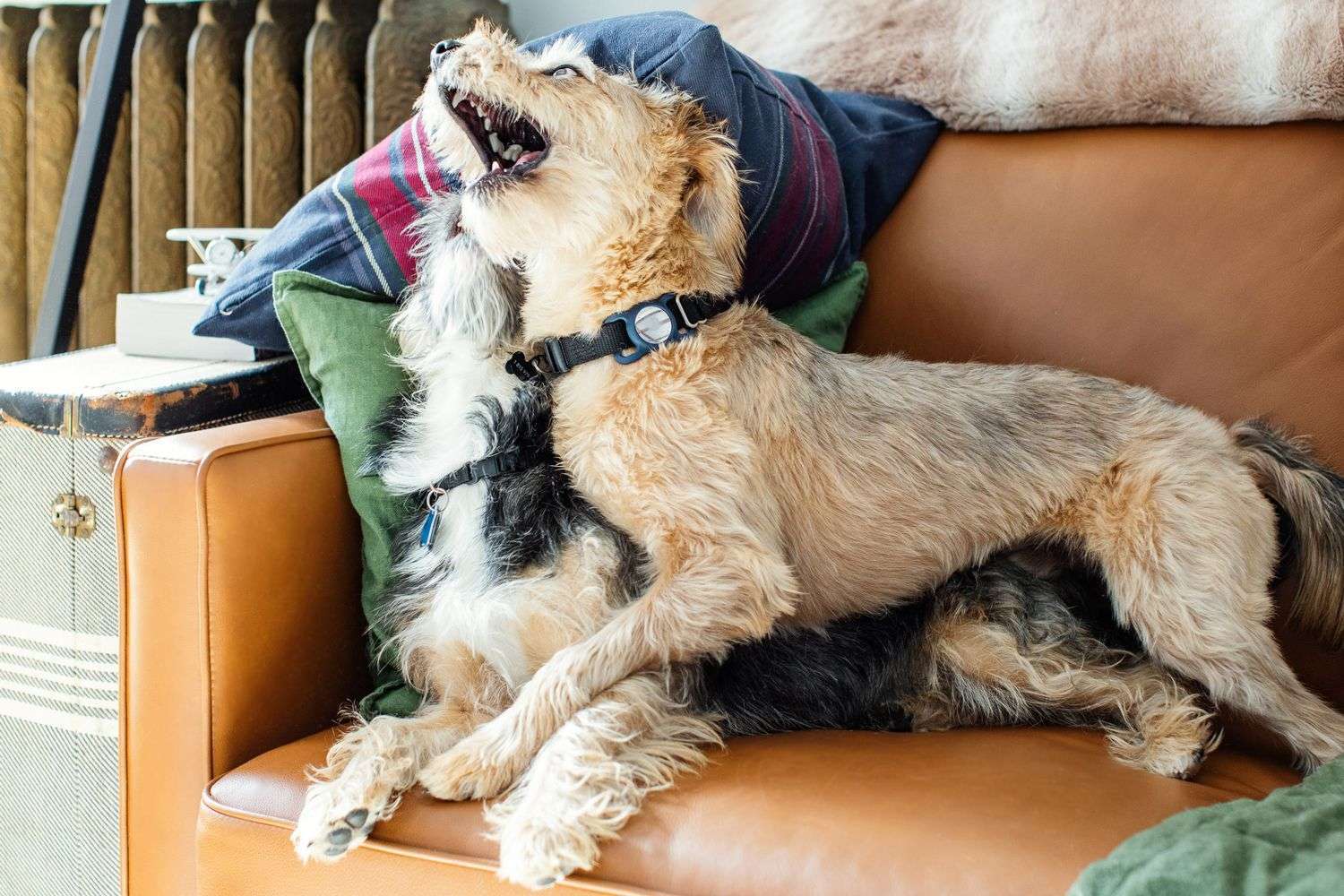Key Takeaways:
- Puppy aggression is a normal behavior that can be managed and resolved with proper training.
- Early socialization and positive reinforcement are crucial in preventing puppy aggression.
- Understanding the triggers and body language of a puppy can help prevent aggressive behavior.
- Seeking professional help from a dog trainer or behaviorist is recommended for addressing and managing puppy aggression.
- Consistency, patience, and positive reinforcement are key in training a puppy to overcome aggression issues.
Are you a dog lover or someone who is considering getting a puppy? If so, understanding puppy aggression is crucial for ensuring the safety and well-being of both your furry friend and those around them. By delving into this subject, you will gain valuable insights that can help prevent potentially harmful situations and foster a harmonious relationship with your new companion. Did you know that according to recent studies, up to 70% of dog bites involve children? This alarming statistic highlights the importance of comprehending puppy aggression and taking proactive measures to address it. In this article, we will explore the underlying causes of puppy aggression, provide practical tips on how to manage it effectively, and ultimately create a happy and balanced environment for both you and your four-legged friend. So let's dive in and unravel the mysteries behind puppy aggression!
Understanding Puppy Aggression: What You Need to Know
Puppy aggression can be a confusing and concerning behavior for pet owners. It's important to understand that aggression in puppies is not uncommon and can be addressed with proper training and socialization. Aggression can manifest in various ways, such as growling, biting, or snapping. By understanding the underlying causes of puppy aggression, you can take the necessary steps to prevent and manage it.
What is aggression?
Aggression is a behavior displayed by animals, including puppies, when they feel threatened or frustrated. It is their way of protecting themselves or asserting dominance. While some level of aggression is normal during puppyhood as they learn boundaries and establish their place in the social hierarchy, excessive or uncontrolled aggression can become a problem.
How common is puppy aggression?
Puppy aggression is relatively common, especially during the early stages of development. Puppies are still learning how to interact with their environment and other animals, so occasional displays of aggressive behavior are not unusual. However, if the aggression becomes frequent or intense, it's essential to address it promptly before it escalates into a more significant issue.
Recognizing Signs of Aggression in Puppies: How to Tell
Recognizing signs of aggression in puppies is crucial for early intervention and prevention. Here are some common signs that may indicate aggressive behavior:
- Growling or snarling when approached or touched
- Biting or nipping during play that becomes too rough
- Showcasing stiff body posture with raised fur
- Barking excessively at people or other animals
- Guarding food or toys aggressively
- Snapping or lunging when startled or frightened
If you notice any of these signs, it's important not to ignore them. Addressing aggression early on can prevent it from escalating and becoming a more significant issue in the future.
Common Reasons for Puppy Aggression: What Causes It?
Puppy aggression can have various underlying causes. Understanding these reasons can help you address the aggression effectively:
Fear and Anxiety
Puppies may display aggression when they feel scared or threatened. This could be due to unfamiliar environments, loud noises, or traumatic experiences. Helping your puppy build confidence through positive reinforcement training and gradual exposure to new experiences can alleviate fear-based aggression.
Protectiveness
Puppies may become possessive or protective over their resources, such as food, toys, or territory. This type of aggression is often seen as a natural instinct to guard their belongings. Teaching your puppy proper boundaries and providing consistent leadership can help manage protectiveness-related aggression.
Redirected Aggression
Sometimes, puppies may redirect their aggression towards people or animals that are not the direct cause of their frustration. For example, if a puppy becomes agitated by a person passing by outside a window, they may redirect their aggression onto someone nearby. Recognizing triggers and avoiding situations that lead to redirected aggression is crucial in managing this behavior.
Different Types of Puppy Aggression and Their Differences
Puppy aggression can manifest in various forms, each with its own distinct characteristics. Understanding these different types of aggression is crucial for effectively addressing and managing them. The most common types include fear aggression, territorial aggression, and resource guarding.
Fear Aggression
Fear aggression occurs when a puppy feels threatened or scared. It may exhibit aggressive behaviors such as growling, barking, or even biting as a defensive response. This type of aggression often stems from past traumatic experiences or lack of proper socialization.
Territorial Aggression
Territorial aggression is displayed when a puppy becomes protective over its territory or personal space. It may show aggressive behaviors towards unfamiliar people or animals that enter its perceived territory. This can include excessive barking, lunging, and even biting to defend its boundaries.
Resource Guarding
Resource guarding refers to a puppy's possessive behavior towards valuable resources like food, toys, or even its favorite spot on the couch. When approached by humans or other animals while guarding these resources, the puppy may display aggressive behaviors such as growling, snapping, or biting to protect what it considers its own.
Understanding the differences between these types of aggression is essential for implementing appropriate training techniques and interventions tailored to address each specific issue.
The Importance of Socialization in Preventing Puppy Aggression
Socialization plays a vital role in preventing puppy aggression and fostering well-rounded canine companions. Early exposure to various people, animals, environments, and stimuli helps puppies develop confidence and adaptability.
Positive Experiences with People
Introducing puppies to different individuals in positive ways helps them build trust and reduces the likelihood of developing fear-based aggression towards humans later in life. Encouraging gentle interactions with strangers and rewarding calm behavior can help puppies associate people with positive experiences.
Interaction with Other Animals
Allowing puppies to interact with other well-behaved dogs and animals helps them learn appropriate social cues and develop healthy relationships. This exposure reduces the chances of developing aggressive behaviors towards other animals, promoting a harmonious coexistence.
Exposure to Various Environments
Taking puppies to different environments, such as parks, busy streets, or even pet-friendly stores, exposes them to new sights, sounds, and smells. This exposure helps desensitize them to potentially overwhelming stimuli and prevents fear-based aggression triggered by unfamiliar surroundings.
By prioritizing socialization during a puppy's critical developmental stages, owners can significantly reduce the risk of aggression issues later in life and ensure their furry companions grow up to be well-adjusted and friendly pets.
Managing and Training an Aggressive Puppy: Effective Strategies
Dealing with an aggressive puppy requires patience, consistency, and effective training strategies. Here are some techniques that can help manage and train an aggressive puppy:
Positive Reinforcement
Using positive reinforcement techniques like treats, praise, and rewards for desired behaviors encourages puppies to repeat those actions. Rewarding calm behavior instead of reacting to aggression helps redirect their focus towards more appropriate responses.
Behavioral Modification Exercises
Engaging in behavioral modification exercises can help reshape an aggressive puppy's response patterns. Techniques such as desensitization (gradually exposing the puppy to triggers at a safe distance) and counterconditioning (associating positive experiences with previously feared stimuli) can be effective in reducing aggression over time.
Example: Counterconditioning Exercise for Fear Aggression
```mermaid
graph LR
A(Fearful Stimulus - Vacuum Cleaner)
B(Positive Experience - Treats & Praise)
C(Aggressive Response - Barking & Growling)
D(Positive Experience - Treats & Praise)
E(Desensitization and Counterconditioning)
A --> C
B --> C
C --> E
D --> E
```
Consistent Boundaries and Rules
Establishing consistent boundaries and rules helps an aggressive puppy understand what is expected of them. Clear guidelines regarding acceptable behavior, such as not allowing jumping or biting, should be reinforced consistently to prevent reinforcement of aggressive tendencies.
Professional Training Assistance
In some cases, seeking professional help from a certified dog trainer or behaviorist may be necessary. These experts can provide specialized guidance tailored to the specific needs of the aggressive puppy, ensuring that training techniques are implemented correctly and effectively.
By employing these strategies and seeking professional assistance when needed, owners can manage and train their aggressive puppies towards more desirable behaviors, fostering a safe and harmonious relationship between the puppy and its human companions.
When to Seek Professional Help for an Aggressive Puppy
While many cases of puppy aggression can be addressed through proper training and management techniques, there are instances where professional help becomes necessary. It is crucial to recognize when seeking assistance from a certified dog trainer or behaviorist is warranted:
Safety Concerns
If an aggressive puppy's behavior poses a significant risk to the safety of humans or other animals in the household, immediate professional intervention is essential. A trained expert can assess the severity of the aggression and implement appropriate measures to ensure everyone's well-being.
Lack of Progress
If despite consistent training efforts, an aggressive puppy's behavior shows no signs of improvement or even worsens over time, it is advisable to consult with a professional. They can evaluate the situation holistically, identify any underlying issues contributing to the aggression, and develop a customized plan to address them effectively.
Complex Aggression Cases
Certain aggression cases may involve complex underlying factors, such as fear-based aggression resulting from past trauma or genetic predispositions. In such instances, professional help is crucial for accurately diagnosing and addressing the root causes of the aggression.
Remember, seeking professional assistance early on can prevent aggressive behaviors from escalating and ensure a safer and happier environment for both the puppy and its human family.
In conclusion, it is important to understand that puppy aggression is a normal part of their development. By providing proper training, socialization, and consistent discipline, we can help prevent and manage aggressive behaviors in puppies.
Can you train aggression out of a puppy?
The crucial thing is to identify and address aggression at an early stage and consistently work on it. If aggression is left unaddressed for a longer period of time, it becomes more difficult to change. It is generally possible to train an aggressive dog, but it will require time, patience, and consistent effort on your part.
Why is my puppy so aggressive?
Puppies that are raised in inadequate conditions, such as puppy farms where they don't receive enough mental stimulation or exposure to new experiences, can become withdrawn or display aggressive behavior when faced with something unfamiliar. This behavior is similar to resource guarding, but instead of protecting an object, they are guarding a specific area or territory.
Why is my puppy biting me aggressively?
The majority of puppy mouthing is typical behavior. However, there are some puppies that bite out of fear or frustration, which can indicate potential aggression issues in the future. Puppies may also have temper tantrums, often occurring when they are being made to do something they dislike.
Why does my puppy snap at me when I say no?
When a dog is behaving out of fear or frustration, such as barking and lunging while on a leash, simply saying 'no' without addressing their underlying fear or frustration can actually worsen their behavior. This may result in more aggressive actions like growling, snapping, or biting.
Why does my puppy growl and snap at me?
Growling may appear aggressive, but it is actually a form of communication for puppies and dogs. It is how they express their discomfort, fear, or unhappiness in a particular situation. Additionally, growling serves as a warning, indicating that a bite may be imminent.
How do you punish a puppy for biting?
It is not recommended to shout at your puppy when they bite, but it is acceptable to use a clear and firm signal like saying "No!" when they make a mistake. If your puppy becomes nippy during play, stand up, remove your hands, and say "No!" Once they have calmed down and are sitting, reward them with a treat and continue to interact and play with them.

















